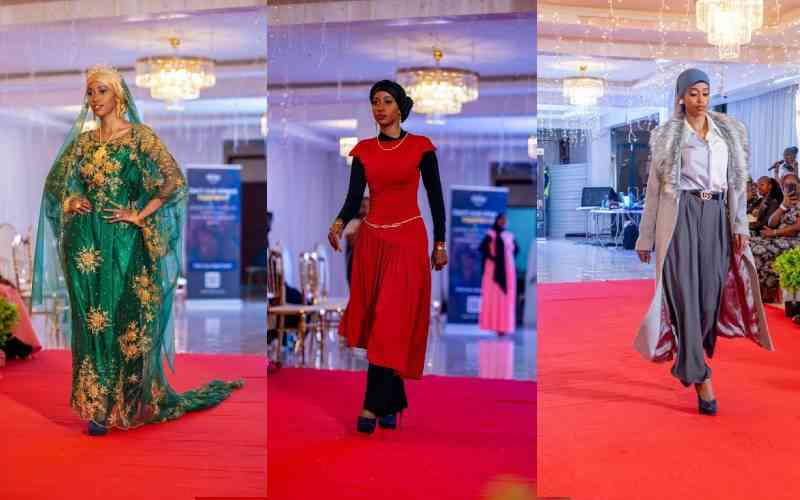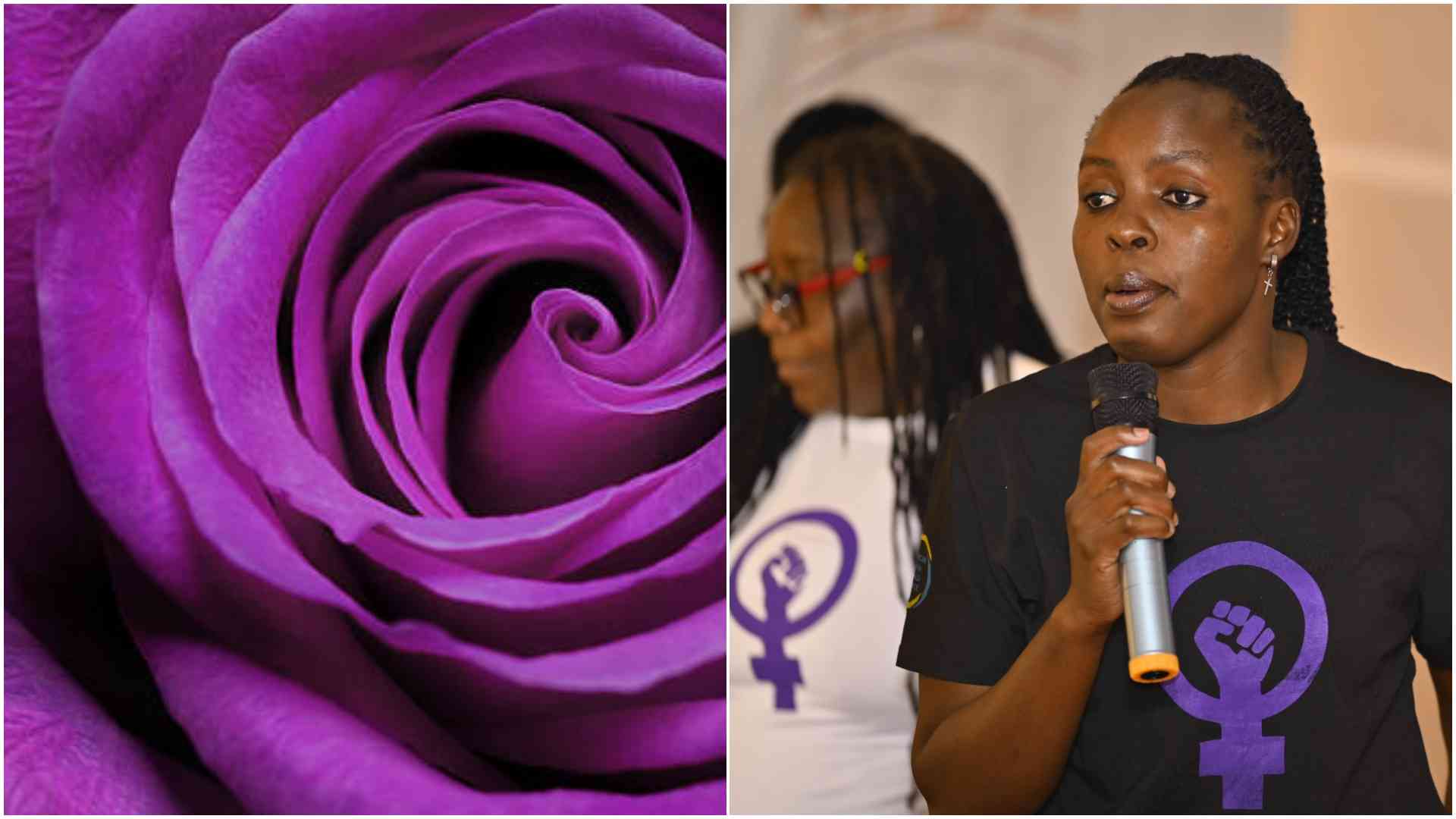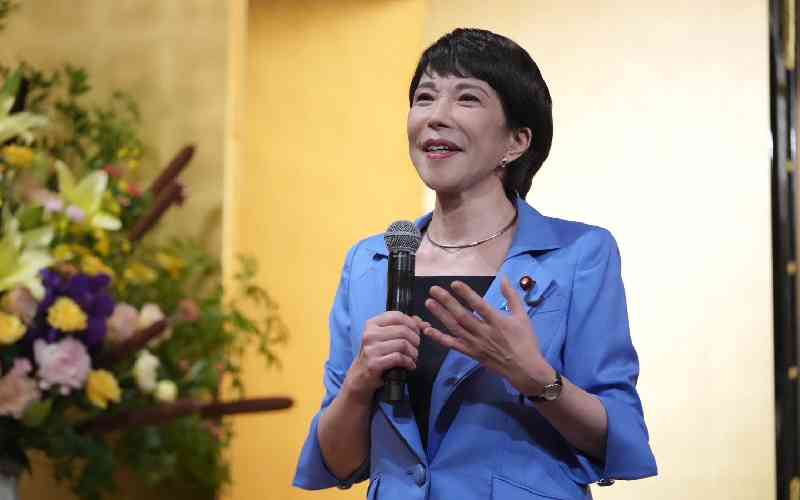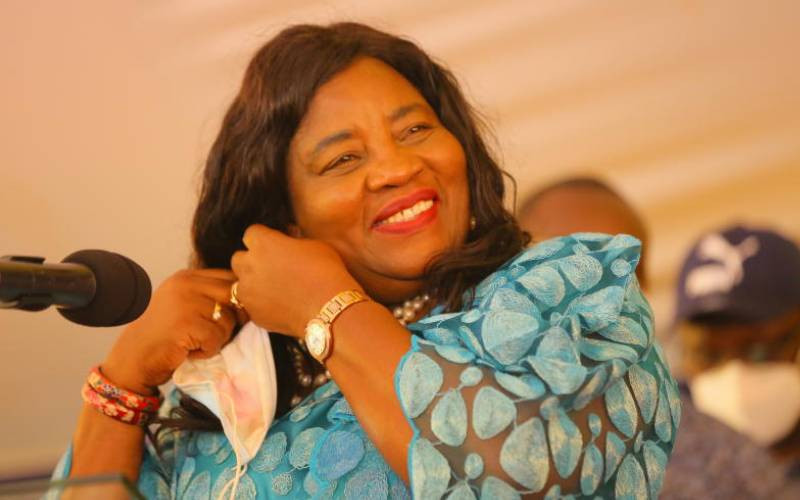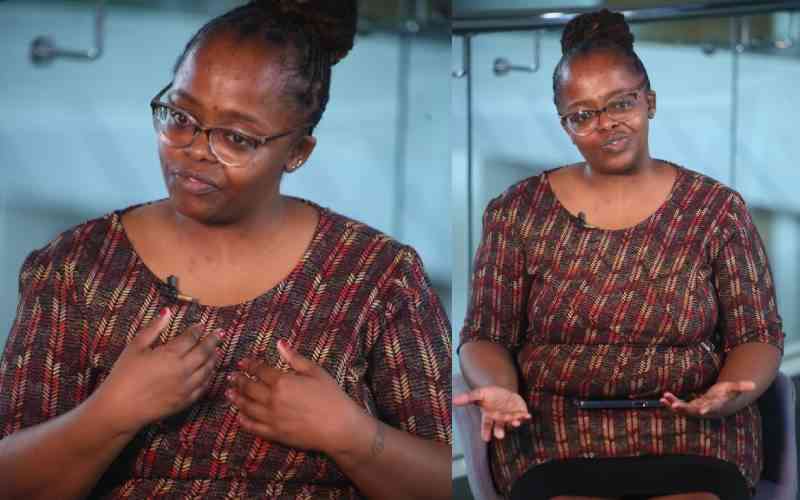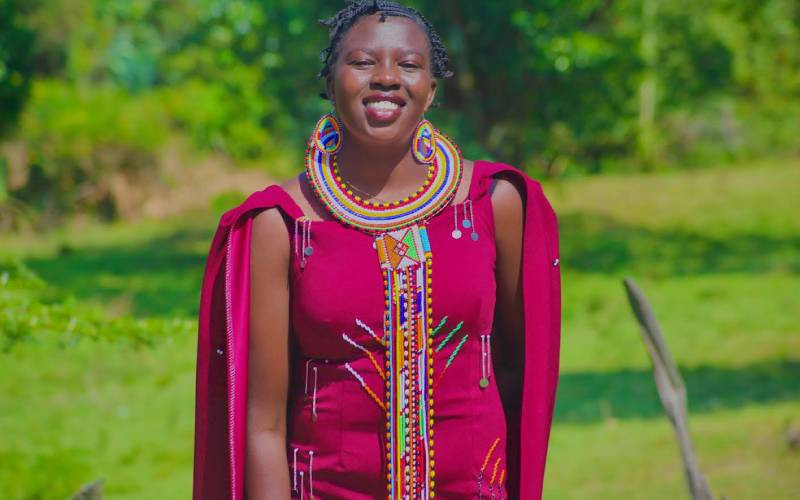
With 97% of Kenya's total construction force being male and a paltry 3% of it being women, this space has for the longest time been considered to be a man's world.
Tatu Gatere, an architect by training, has focused her energy on changing this narrative. Through her organisation, Buildher, she is working to empower women from informal settlements with accredited construction skills.
What was your inspiration behind this initiative?
I changed my career from commercial architecture in 2015 when I shifted my focus to using architecture to improve the livelihoods, social and economic lives of communities living in Kibera. The organization I worked with designed and built productive public spaces with communities. I started a carpentry training programme while with the organization but it was difficult to get women to register for the training. They seemed intimidated by formal technical training even though they were participating in the building of projects. This left me with questions about women’s perceptions about their technical abilities.
When I left Kibera I connected with my Co-Founder James who was running a design build company in Nairobi called BuildX Studio which had a training program that also focused on training women in construction skills. The program had numerous successes but also had limitations as the training was conducted on active sites with timelines and budgets that restricted the depth of training. We came together to form Buildher in 2018 in response to the opportunities and challenges we had both encountered in our social architecture and built environment careers, while providing on-site skills training to women and youth.

How does Buildher work?
We focus on women aged between 18-35 years old who are typically uneducated or semi-educated. They are often mothers, frequently single mothers who earn below Ksh300 per day.
We work with community CBOs to recruit women into the program through a participatory application process. Those who are accepted go through an intensive 4-month workshop training. During the 4-month training, the women receive technical skills training, including technical drawing, theory and workshop practical. This accounts for 60% of the training.
The remaining 40% offers training on emotional intelligence, work readiness, critical life skills such as leadership, conflict resolution, gender training among others. They also get taught on health and wellness areas such as sexual reproductive health, mental health, nutritional support as well as physical conditioning. Since many of the trainees are mothers, the organization provides social support services such as childcare support check-ins and family days. The women are provided with a stipend to cover rent, food and transport costs to reduce the barriers that they would normally face that might affect their ability to attend the program.
At the end of the 4-months, the women are tested and placed into an 8-month supervised paid employment training at a semi-skilled level to work with employers and contractor partners.
The aim is to ensure that the women placed with employers continue their skills development and can learn from and maintain employer’s quality standards. It also gives women a supportive, equal environment to start their construction careers.
Successful trainees at the end of the 12-month programme sit for NITA certification and qualify as skilled artisans and can now work in the construction industry with the opportunity to improve their skills and get higher levels of certification over time.
As a value add we also support our employer partners with Toolbox trainings for their male and female artisans in gender integration and soft skills like professional communication, leadership skills, money management, conflict resolution, NHIF sensitization among others. To help our employer partners improve their workforce productivity.
What need are you filling in the market?
There is currently a huge gap in the construction sector for formally trained and skilled artisans. Many contractors also loose time and resources to inefficient hiring processes and high artisan turnover which make it hard to control the quality of construction. Employers also often say that women make for good artisans with their dedication to work and their ability to focus on details, yet most employers never hire women; citing that it is hard for them to find women interested in construction as it is a male dominated sector.
We aim to bridge this gap with the many women seeking stable and reliable work. We empower women through linking formal construction skills training to employment offering them a dignified and sustainable income. We also support employers to integrate women into construction through toolbox gender integration training which is offered along with other soft skills training based on the employer’s staff needs.
There is a need for quality work in this industry. Most of the construction workers out here have no formal training, they tend to learn on the job and in many cases, quality is compromised. So this program is our contribution to the industry increasing the number of qualified workers to inject into the sector. Our training provides a workforce dedicated to continuous learning and skills growth to meet construction sector demands.

What impact can you say you have made?
We have trained 170 women in construction skills across 3 cohorts and have achieved a 330% increase in income for women going into employment after only 5 months. Our employment partners are reporting a 67% average increase in productivity for work that involves Buildher women while 56% of our employment partners have been developing/reviewing workplace policies to support the integration of women into construction sites.
In addition, more than 4,700 beneficiaries in total from informal settlements have been reached and impacted by Buildher community support interventions.
What have been the highlights so far?
For me it’s seeing these women who come to us so broken and unsure of themselves find their voice and confidence from the program. Many of these women have not had access to formal education or come from abusive relationships and an environment of poverty. Through the empowerment training these women have developed their confidence to go out there and do what makes them happy while providing a good life for themselves and their family.
I have had many amazing stories but there is one trainee who always stands out to me. One of her arms got severely injured in a fire, critically limiting her ability. She was so determined to be in the program that we didn’t notice until she started her practical workshop training. She never asked for any special treatment. We learnt how to support her as she taught herself how to adjust her body to use the tools and machines. She pushed herself to complete the program and emerged as one of the best trainees in her cohort. She inspired me and everyone around her, and opened our eyes up to how we could support trainees with limited ability.

Do you think the Kenyan education sector has played a role in the construction sector?
Yes. We have grown up with an education system that does not allow for curiosity. The school system lacks the approach, budgets and resources to nurture curiosity and courage. That has played a role in how children think about life and how they see challenges; and in how adults determine their place in society, and decide what opportunities are available to them.
Also girls and boys have distinct roles in upbringing and social life, this is almost directly reflected in the gender imbalance in sectors such as STEM and the construction sector. You can’t raise children with gender stereotypes then magically hope they have the courage to join careers that step outside gender roles. Many jobs of the future, STEM jobs, that are sustainable and well-paying, are jobs that lie outside gender stereotypes. We need to raise and educate children to be brave and curious to decide their own futures.
What challenges have you faced?
There are few women in leadership and in turn fewer spaces to learn from and connect to a woman’s approach to leadership. Sometimes it can be very difficult navigating and developing my own leadership style but I have come to rely on my experience and trust my intuition when it comes to management, and strategy development. The other challenge is that running a company with a vision that others don't see can be a bit difficult, it takes a lot of effort to help your team see and value that mission. Also working with women who have been undermined from birth can be hard. We work to help women reclaim their voice, find purpose and build confidence in themselves.
Has the government played a role in helping empower women in the construction industry?
Yes but I think they need to do more. The National Construction Authority has been working to grow the number of women in construction, so hopefully we will see more women in the next few years. Our work at Buildher shows us that integrating women into the construction industry starts with small measures like ensuring that women have access to separate and clean sanitation facilities on site. It might seem trivial but many women shy away from sites because they have no access to washrooms.
We also see that poor health is affecting lower wage workers. It frustrates me when there are NHIF scandals and issues because this directly affects the women we work with. We have been working to increase uptake of NHIF for women in our programme. The government needs to recongnise that health conditions directly affect work capacity and earning potential. Women from low income settlements suffer from complications that arise from poor maternal health care such as fistula, endometriosis etc. Medical care access for these women is often impossible without employment access. With a steady income they are able to access maternal health care through NHIF and ensure they can remain healthy to work and take care of their families.

How do you cope with this responsibility?
It can be difficult, I often take a step back and remind myself why I started all of this. I check whether what I am doing still aligns with my personal values which are community development, empowerment and dignity. I also have a capable team, nurturing leadership and delegating tasks while staying connected to progress gives me time to focus on organization growth and development.
I also create opportunities to focus on my wellness through yoga and meditation.
What is the one thing you would leave us with?
I often think about how we as Kenyans are steeped in a scarcity mentality. We constantly battle with the fears and realities of poverty which has led to the hustle approach Kenyans have. We all need to have a hustle in addition to our jobs or biashara. I think our entrepreneurial spirit is commendable but not if it prevents us from showing up fully, improving our skills and growing excellence in our work. It should not take us away from personal and professional development.
We need to take the time to learn and horn our craft and skills so that we can be deliberate about our performance and how we show up. We teach women in our program to focus on skills development first, to build their employability, gain sustainable work which can then allow her to build a sustainable hustle, rather than over burdening herself with many activities that keep her busy yet underpaid.
 The Standard Group Plc is a multi-media organization with investments in media
platforms spanning newspaper print
operations, television, radio broadcasting, digital and online services. The
Standard Group is recognized as a
leading multi-media house in Kenya with a key influence in matters of national
and international interest.
The Standard Group Plc is a multi-media organization with investments in media
platforms spanning newspaper print
operations, television, radio broadcasting, digital and online services. The
Standard Group is recognized as a
leading multi-media house in Kenya with a key influence in matters of national
and international interest.

